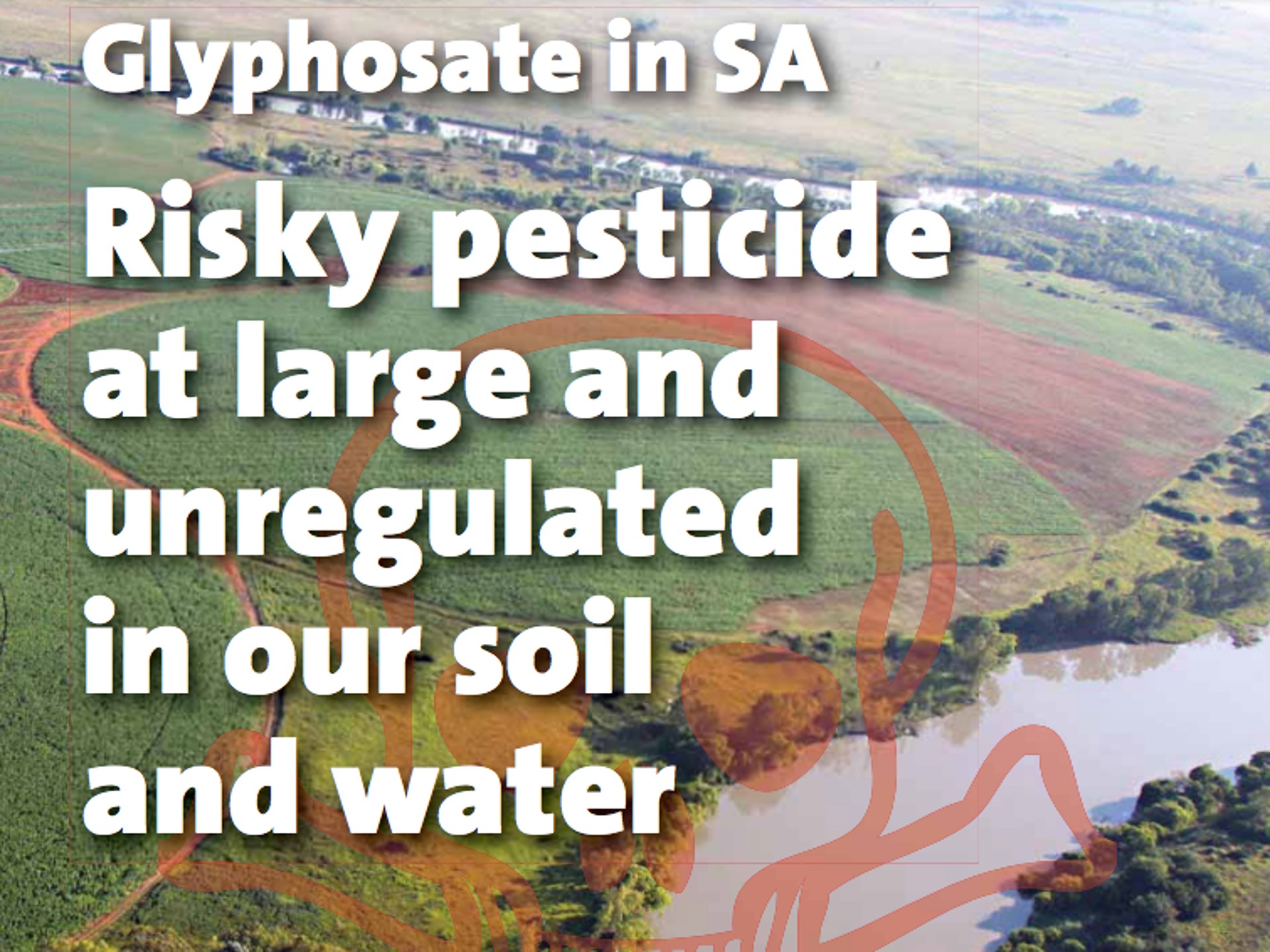Latest Resources

20 May 2014
Below the belt, below the breadline – South Africa’s inequitable and GM contaminated ...
The African Centre for Biosafety (ACB) has today brought into sharp focus the white bread industry in South Africa with the release of its new report “GM Contamination, Cartels and Collusion in South Africa’s Bread Industry.’ The report shows that the white bread tested contains high levels of Monsanto’s genetically modified (GM) soya in the […]

23 October 2013
Africa bullied to grow defective BT Maize: the failure of Monsanto’s M810 maize in South Af...
The African Centre for Biosafety (ACB) has released a new report ‘Africa bullied to grow defective Bt Maize: the failure of Monsanto’s MON810 maize in South Africa,’ showing how Monsanto’s GM maize which utterly failed in SA, is now being foisted on the rest of the continent, through ‘sleight of hand.’ Read here.

8 October 2012
Glyphosate in SA: Risky pesticide at large and unregulated in our soil and water
The research shows that although glyphosate (a weed killer) is ubiquitous throughout South African agriculture, it poses many environmental risks and yet there is precious little research done to monitor and manage its environmental impacts. Read more here.

15 September 2012
Alliance for a Green Revolution in Africa (AGRA): laying the groundwork for the commercialisation...
We consider AGRA’s broad philosophy and structure, focusing on AGRA’s own views or those of its consultants, before turning to a more detailed consideration of its specific work in the Programme for Africa’s Seed Systems (PASS) and, in slightly less detail, its Soil Health Programme (SHP). These programmes are inseparable because seed and soil fertility […]

9 May 2011
Critique of SANBI’s Studies on Monsanto’s MON 810
During early in 2011, the South African National Biodiversity Institute (SANBI) published a report titled, Monitoring the Environmental Impacts of GM Maize in South Africa. The report was a culmination of a study by the Environmental Biosafety Cooperation Project (EBCP) aimed at developing a framework for monitoring of insect resistant maize, Mon810, belonging to Monsanto. […]

13 August 2010
GM Sorghum: Africa’s Golden Rice
In this paper, we critically analyse the African Biofortified Sorghum (ABS) project, a GM ‘poster project’ in Africa. We dig beneath the veneer of the project being an “African led solution” to poverty and malnutrition on the continent. We also focus attention on the myriad of sorghum research initiatives currently underway in Africa, using both […]

12 May 2010
Traceability, segregation and labelling of genetically modified products in South Africa: A Posit...
South Africa has promulgated national legislation, the Consumer Protection Act (CPA), which creates an opportunity for the mandatory labelling of certain foodstuffs containing or which are genetically-modified organisms (GMOs). The Act sets out a number of consumer rights that have relevance to the sale of products with genetically modified components. These include the right to […]

17 April 2010
Scottish Parliament Motion on GM entry refusal, Kenya, South Africa
*S3M-6119 Bill Wilson: Biodiversity Coalition Opposes GM Contamination. That the Parliament notes reports that 40,000 tons of genetically modified (GM) maize from South Africa have been refused entry to Kenya as a result of protests led by the Kenya Biodiversity Coalition. Further notes, with reference to motion S3M-05873 by Bill Wilson ‘Who Benefits from GM […]

7 February 2010
A profile of Monsanto in South Africa
Monsanto is a globally dominant company in the agrochemical, seed and agricultural biotechnology sector. It has been active in the agrochemicals market in South Africa since 1968, and now owns almost all traits used in the South African GM crop market. Thanks to the purchase of local seed companies, Sensako and Carnia, in the late […]

7 February 2010
Bilateral biosafety bullies: How corporations use bilateral trade channels to weaken biotech regu...
Across the world, the use of bilateral trade instruments to prise open markets for genetically modified (GM) crops is escalating. To expand business overseas, the biotech industry needs stronger intellectual property rules and weaker biosafety standards. Bilateral trade deals are an effective way to do this. This report looks specifically at how the world’s grain […]
